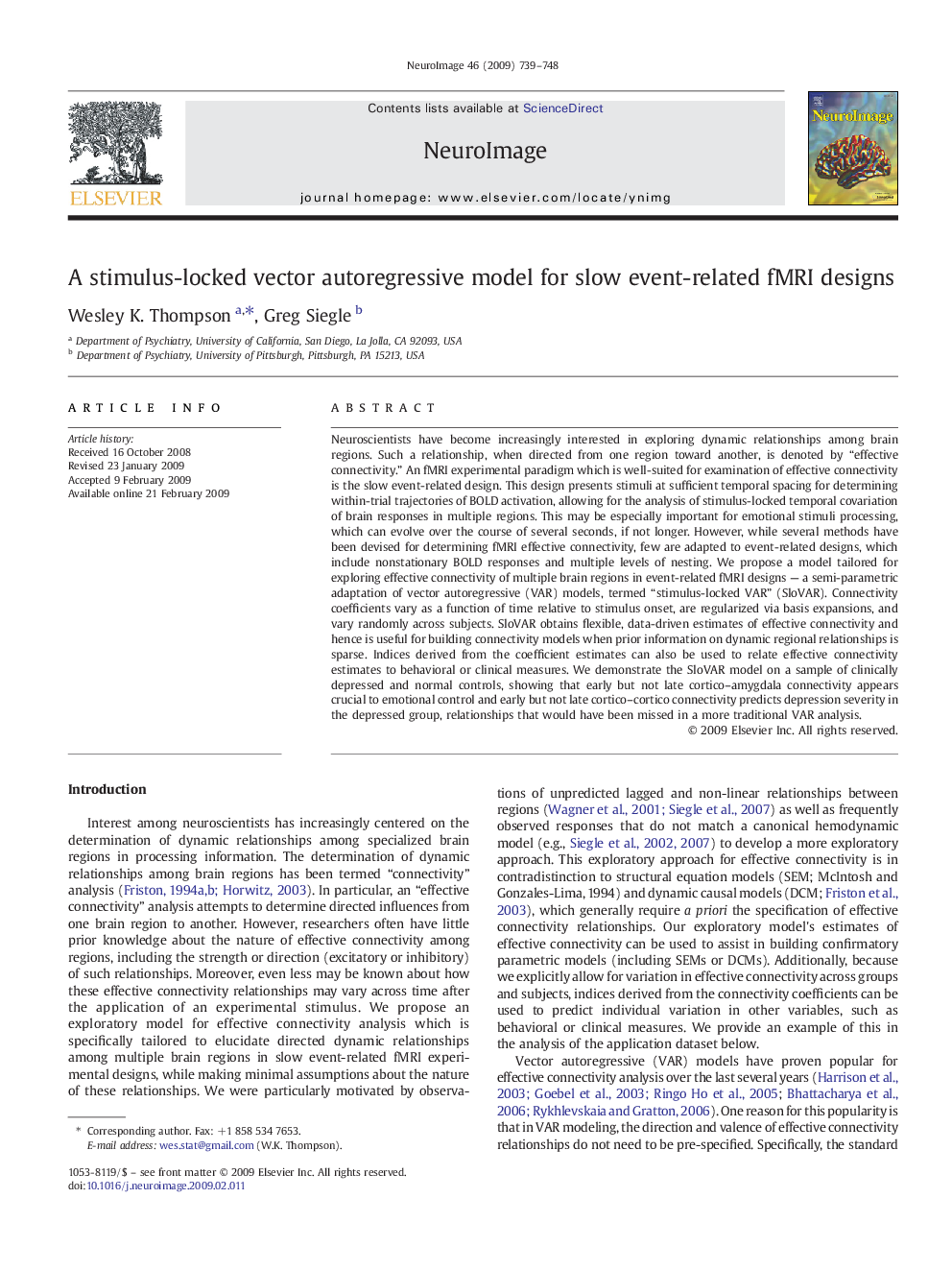| کد مقاله | کد نشریه | سال انتشار | مقاله انگلیسی | نسخه تمام متن |
|---|---|---|---|---|
| 6037865 | 1188790 | 2009 | 10 صفحه PDF | دانلود رایگان |
عنوان انگلیسی مقاله ISI
A stimulus-locked vector autoregressive model for slow event-related fMRI designs
دانلود مقاله + سفارش ترجمه
دانلود مقاله ISI انگلیسی
رایگان برای ایرانیان
موضوعات مرتبط
علوم زیستی و بیوفناوری
علم عصب شناسی
علوم اعصاب شناختی
پیش نمایش صفحه اول مقاله

چکیده انگلیسی
Neuroscientists have become increasingly interested in exploring dynamic relationships among brain regions. Such a relationship, when directed from one region toward another, is denoted by “effective connectivity.” An fMRI experimental paradigm which is well-suited for examination of effective connectivity is the slow event-related design. This design presents stimuli at sufficient temporal spacing for determining within-trial trajectories of BOLD activation, allowing for the analysis of stimulus-locked temporal covariation of brain responses in multiple regions. This may be especially important for emotional stimuli processing, which can evolve over the course of several seconds, if not longer. However, while several methods have been devised for determining fMRI effective connectivity, few are adapted to event-related designs, which include nonstationary BOLD responses and multiple levels of nesting. We propose a model tailored for exploring effective connectivity of multiple brain regions in event-related fMRI designs - a semi-parametric adaptation of vector autoregressive (VAR) models, termed “stimulus-locked VAR” (SloVAR). Connectivity coefficients vary as a function of time relative to stimulus onset, are regularized via basis expansions, and vary randomly across subjects. SloVAR obtains flexible, data-driven estimates of effective connectivity and hence is useful for building connectivity models when prior information on dynamic regional relationships is sparse. Indices derived from the coefficient estimates can also be used to relate effective connectivity estimates to behavioral or clinical measures. We demonstrate the SloVAR model on a sample of clinically depressed and normal controls, showing that early but not late cortico-amygdala connectivity appears crucial to emotional control and early but not late cortico-cortico connectivity predicts depression severity in the depressed group, relationships that would have been missed in a more traditional VAR analysis.
ناشر
Database: Elsevier - ScienceDirect (ساینس دایرکت)
Journal: NeuroImage - Volume 46, Issue 3, 1 July 2009, Pages 739-748
Journal: NeuroImage - Volume 46, Issue 3, 1 July 2009, Pages 739-748
نویسندگان
Wesley K. Thompson, Greg Siegle,